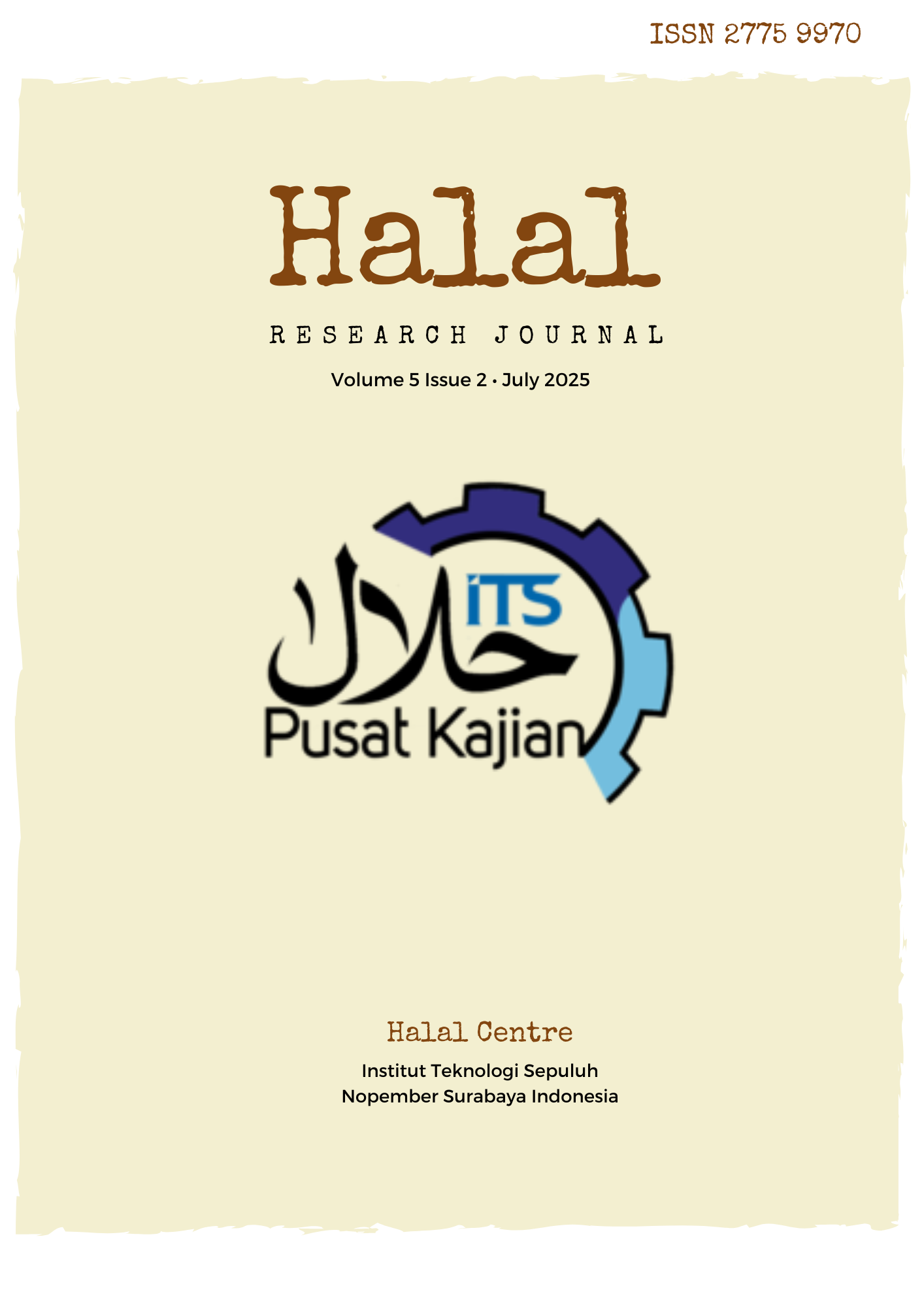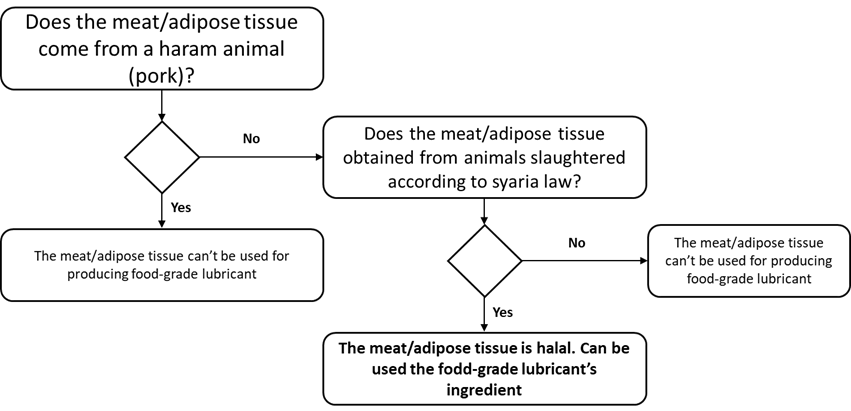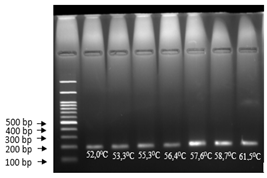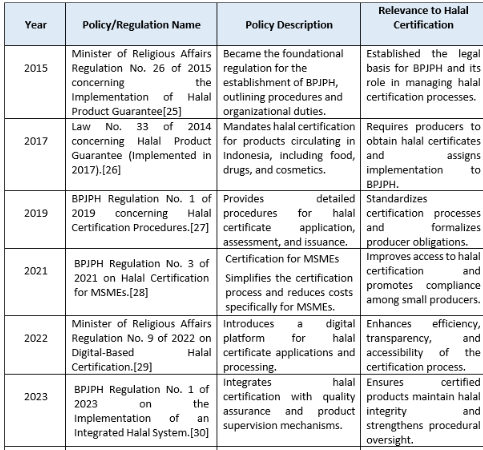Halal Research Journal
A Sinta-4 accredited open access journal advancing research in halal science, technology, and innovation, bridging academia and industry for global impact and development.
Submit Your ManuscriptAbout Our Journal
Advancing original halal and shariah research to support industry innovation and community development worldwide.
P-ISSN: XXXX-XXXX | E-ISSN: 2775-9970

Focus and Scope
The Halal Research Journal (HRJ) is a peer-reviewed, open-access publication from Institut Teknologi Sepuluh Nopember, Indonesia. It features original research and reviews focused on halal and shariah topics, published biannually in English.
HRJ welcomes contributions from academics, researchers, and practitioners exploring halal food, pharmaceuticals, supply chains, certification, economics, ethics, consumer behavior, and emerging technologies.
Our mission is to advance knowledge and innovation in halal science and industry, providing a trusted platform for studies that support halal compliance and development globally.
Detailed Scope
Current Issue
Vol. 5 No. 2 (2025): July
It is with great pleasure that the Halal Research Journal presents its latest issue, highlighting recent advancements and interdisciplinary perspectives in halal science, policy, and market studies. This issue features contributions from researchers in Indonesia and beyond, with insightful reviews conducted by expert reviewers from Indonesia and Malaysia. The collective works presented here reflect the journal’s continued commitment to promoting excellence, innovation, and integrity in halal research.
The first article, “A Halal-Haram Studies: Food-Grade Lubricants in the Food Industry”, examines the crucial role of halal compliance in food-grade lubricants. The study explores how raw materials, production processes, and microbial contamination influence the halal or haram status of lubricants. It also highlights national efforts, such as those by PT Pertamina, in developing halal-certified lubricants that meet SNI 99004-2021 standards.
The second paper, “Optimization of Authentication Methods for Processed Chicken Meat Products Based on ND5 Gene qPCR”, focuses on improving molecular testing methods for food authentication. By optimizing qPCR conditions, this research enhances the reliability of detecting chicken content in processed foods such as nuggets, ensuring both authenticity and compliance with Indonesian standards.
In “Comparative Study of DNA Extraction Methods for Halal Food Testing: Advantages, Disadvantages, and Recommended Methods”, the authors compare several DNA extraction techniques outlined in RSNI3 ISO 21571:2005. The study offers critical insights into selecting the most effective and economical methods for halal verification, serving as a practical guide for laboratories and the food industry.
The fourth article, “Policy Evaluation of the Halal Product Guarantee Agency (BPJPH): Impact on Producer Compliance”, evaluates the effectiveness of halal certification policies in Indonesia. The study underscores BPJPH’s efforts in enhancing producer compliance, particularly among MSMEs, through regulatory simplification, cost reduction, and awareness-building in accordance with Law No. 33 of 2014.
The final contribution, “Halal Food Market Segmentation in New Zealand: New Opportunities for Indonesian Halal Food—A Systematic Literature Review (SLR)”, provides a global perspective by exploring the growing halal market in New Zealand. Through systematic analysis, the paper identifies potential market segments and strategies that could strengthen Indonesia’s halal food industry presence in the international arena.
Together, these studies represent significant progress in addressing the scientific, regulatory, and market challenges of the halal ecosystem. The Halal Research Journal extends sincere appreciation to all authors and reviewers for their dedication and contributions. It is hoped that this issue will inspire continued research collaboration and the development of innovative solutions in the global halal landscape.
Published: 2026-01-19
Articles
Submission Guidelines
Follow these steps to submit your manuscript
1 Manuscript Structure
Prepare your manuscript using the provided template. Include an abstract of 100–150 words with up to 6 precise keywords. The main sections should cover Introduction, Materials and Methods, Results, and Discussion, focusing on clarity and conciseness.
2 Figures and Tables
Submit high-quality figures separately if larger than 10 MB. Use EPS or PDF for vector images, and TIFF or JPG formats for photos and line drawings, adhering to specified dpi standards. Tables must be editable text, numbered consecutively, and should not duplicate data from the text.
3 Equations
Write all equations as editable text using MS Equation Editor. Number equations on the right side for clarity and consistency.
4 References
Use Zotero or Mendeley for citation management. Follow the IEEE referencing style for all cited works, ensuring accurate and consistent formatting in the text and reference list.
5 Submission and Formatting
Submit your manuscript in Microsoft Word (.docx) format following the template guidelines. Ensure all figures, tables, and references meet the formatting requirements to facilitate smooth peer review and publication.
Acceptance Rate:
Ready to Submit Your Research?
Publish your best work with Halal Research Journal
Download Template Detailed Guidelines Submit NowEditorial Team
Our distinguished board of experts
Nur Aini Rakhmawati
Editor In Chief
Department of Information Systems – Deputy Head of Halal Centre, Institut Teknologi Sepuluh Nopember, Indonesia
Nur Farhana Jaafar
Editorial Board Member
School of Chemical Sciences, Universiti Sains Malaysia, Malaysia
Arif Luqman
Editorial Board Member
Institute of Molecular Infection Biology (IMIB), University of Würzburg
Setiyo Gunawan
Editorial Board Member
Department of Chemical Engineering, Institut Teknologi Sepuluh Nopember, Indonesia
Safrina Hapsari
Editorial Board Member
Department of Chemical Engineering, Universitas Brawijaya, Indonesia
Mushonnifun Faiz Sugihartanto
Editorial Board Member
Supply Chain Management and Social Responsibility, Department of Marketing, Hanken School of Economics, Helsinki, Finland
Supratikno
Editorial Board Member
Department of Anatomy, Physiology, and Pharmacology, Institut Pertanian Bogor, Indonesia
Hamdan Dwi Rizqi
Editorial Board Member
Faculty of Chemical and Energy Engineering, Universiti Teknologi Malaysia, Johor Bahru, Malaysia
View All Boards













